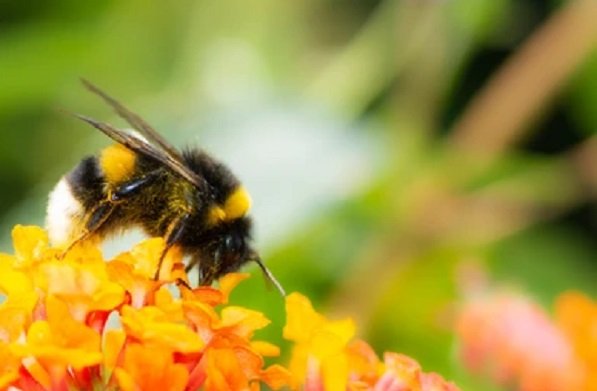The objective of this conclave is to create awareness about the production of other high-value beekeeping products
A National Conclave on Production of Bees Wax was organised by National Dairy Development Board (NDDB), Gujarat in collaboration with the National Bee Board (NBB), Ministry of Agriculture and Farmers Welfare. The conclave was supported by the National Agricultural Cooperative Marketing Federation of India (NAFED) & Tribal Co-Operative Marketing Development Federation of India (TRIFED). The objective of this conclave is to create awareness about the production of other high-value beekeeping products viz. bee wax, bee pollen, royal jelly, propolis, bee venom, etc.
Dr Abhilaksh Likhi, Additional Secretary, Department of Agriculture & Farmers Welfare, said that beekeeping, besides pollination support, also provides extra income and creates employment opportunities for rural/ landless farmers and beekeepers. NDDB, NAFED & TRIFED have been identified as implementing agencies under NBHM for implementing beekeeping activities through a cluster-based approach by making Farmers Producer Organizations (FPOs) on beekeeping.
Abhijit Bhattacharjee, GM, NDDB informed that NDDB is always committed to bringing policies/ schemes beneficial to farmer/ milk producers with the aim to uplift the economy of rural farmer/ milk producers. NDDB has a wide approach that the economy of Indian farmers/ milk producers will only increase if farmers/ milk producers will utilise the resources present in their local area and do not import resources from outside.
Meenesh Shah, Chairman, NDDB, Anand suggested that engaging beekeepers in multiple streams of income through diversified activities is important for building economic resilience. Scientific beekeeping is one such activity that can provide additional income not only from honey production but through the production of other beehive products. He informed that NDDB is promoting beekeeping by using dairy cooperative channels present in the country and creating FPOs by organising beekeepers with the support of NBB.
Dr Prabhat Kumar, Horticulture Commissioner, DA&FW advised beekeepers to work in the field of value-added products in beekeeping to get more financial benefits and uplift their economy.
Dr NK Patle, Executive Director, National Bee Board (NBB) has briefed about the central sector scheme entitled National Beekeeping and Honey Mission (NBHM) and practices aspects relating to beekeeping. He invited beekeepers to avail the facilities available under NBHM and adopt beekeeping in a scientific manner to get additional income through honey & other beehive products. He assured full support to beekeepers across the country under the NBHM scheme.
Dr Balraj Singh, Project Coordinator, Honeybee and Pollinators (HB&P), IACR said that in India, beekeeping is mainly practised for the production of honey only and therefore there is a need to create awareness about the diversification of beekeeping for the production of various other beehive products.
Dipenkumar C Patel, Progressive Beekeeper & Director, One Bee Organic, Gujarat introduced the participants to different types of honey, various bee products, its collection methods and types of equipment/machinery used.
Jaswant Singh, Tiwana Bee Farm, Ludhiana, Punjab inform that their firm is involved in the production of all kinds of bee products and equipment/machinery. His firm is involved in the production of Comb Foundation Sheets (CHS) from bee wax.
Jai Prakash, Senior Manager, Indian Bank has informed that to address the issue of adulteration in honey & other beehive products, National Bee Board has launched online registration and developing a blockchain /traceability system of the source of honey and other bee products. He showcased the procedure of online registration on Madhukranti Portal and requested all beekeepers/ other stakeholders to come forward and register themselves on this portal.
The objective of this conclave is to







